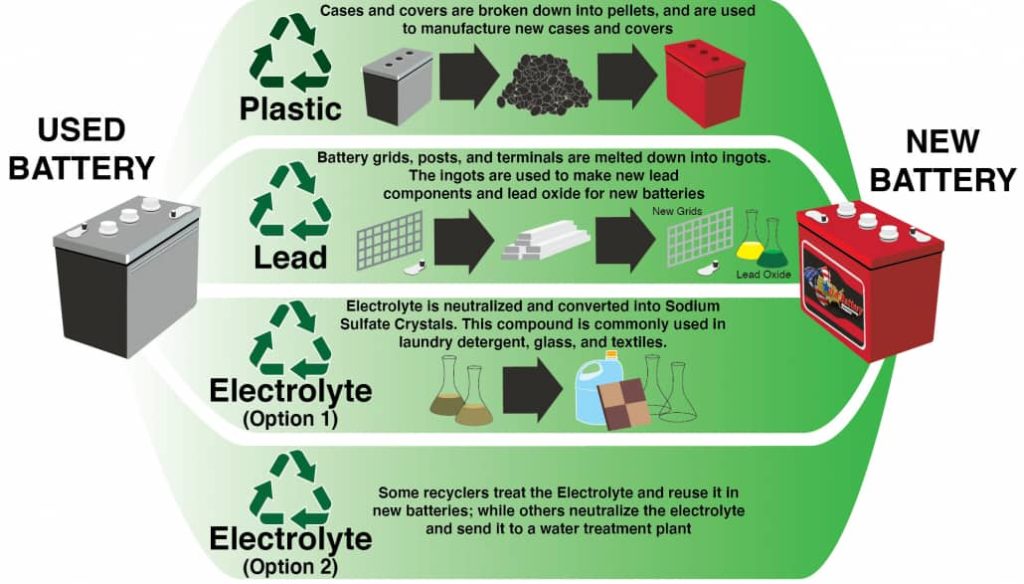Since 1970, Earth Day has stood as a celebration of the modern environmental movement. Today people and industries around the world, including the lead battery industry, have answered the call to help improve our world by developing methods of manufacturing and operations that are more environmentally friendly. As a result of these new approaches, lead batteries are now a sustainable energy source used in a wide range of applications.
The battery industry has emerged as one of the major success stories of this Earth Day movement. Flooded Lead Acid (FLA) batteries are recognized by the U.S. Environmental Protection Agency as the most recycled consumer product in the nation. The innovative recycling methods for the lead battery industry result in 99 percent of every lead battery being recycled. Translating into 130-million used batteries not reaching landfills annually. Over the decades, the process has evolved to use almost every part of the battery.
The polypropylene outer case and cover are broken down into small pellets and manufactured into new batteries and other plastic products. The internal lead components of the battery are melted down to make components for new batteries. The battery’s electrolyte is neutralized and purified into water or converted into sodium sulfate, a compound commonly used in laundry detergent, glass, and textiles.
The effects of the battery industry’s efforts, however, don’t end there. As well as reducing its environmental impact, the battery industry provides $26.3-billion in revenue to the nation’s economy, impacting suppliers, worker spending, transportation, and distribution sectors. According to the Battery Council International (BCI), the international trade association of battery manufacturers, an estimated $1.7 billion is put into payroll within an industry of approximately 25,000 workers in the United States.
In addition, advancements in battery technology have turned lead batteries into one of the most cost-efficient forms of energy, allowing battery-powered equipment to operate cleanly and with increased reliability. Lower operating costs also offer advantages to lead battery-powered machinery and vehicles, further reducing emissions and reducing the environmental impact of other industries that embrace battery power.
U.S. Battery is proud to be a part of this effort and continually encourages customers and industries it’s involved in to recycle and use battery power where ever possible. Please join U.S. Battery and others in the global community in celebrating Earth Day by visiting the EarthDay.org website and finding an event to participate in or ways to take action. For more information, visit www.earthday.org, or for more information on sustainable deep-cycle batteries for various applications, visit www.usbattery.com.

